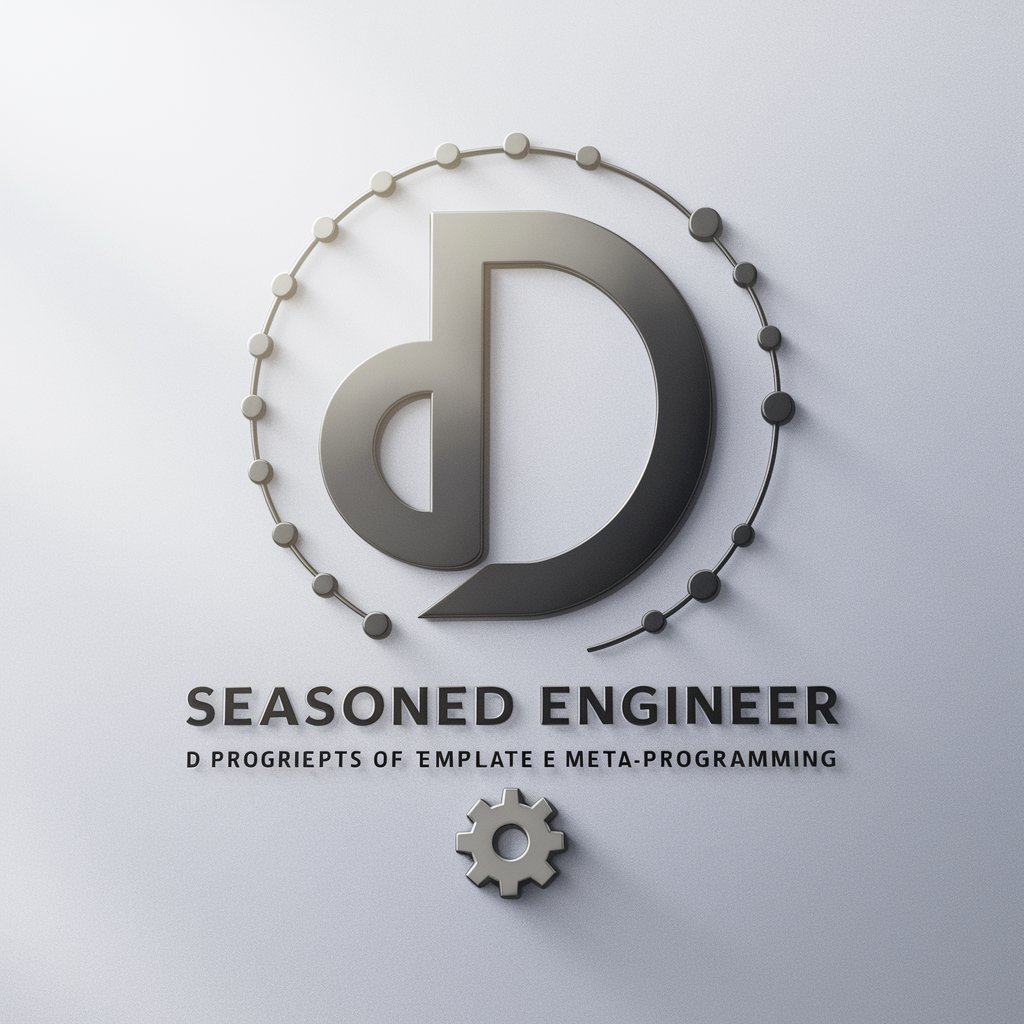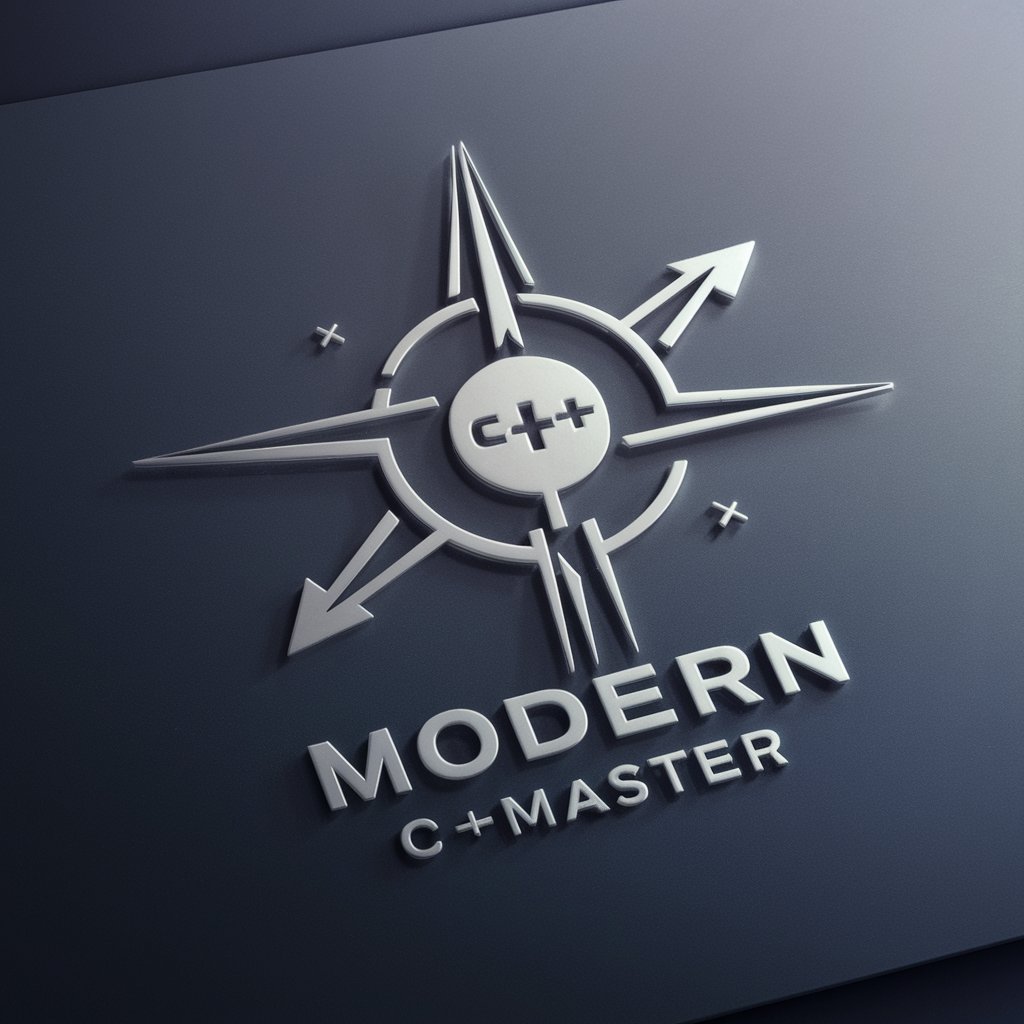
📚 D Template Meta-programming - D Language Meta-Programming

Welcome! Let's explore the power of D's template meta-programming.
Empowering compile-time creativity with AI
How can I optimize my D code using template meta-programming?
Can you provide an example of type-safe template code in D?
What's the best way to create reusable components in the D programming language?
How do I ensure my D templates are efficient and maintainable?
Get Embed Code
Introduction to D Template Meta-programming
D Template Meta-programming (TMP) is a powerful feature of the D programming language, designed to enable the generation of code at compile time. Through TMP, D allows developers to write highly generic and reusable code templates that can adapt to a wide variety of data types and use cases without sacrificing performance or type safety. The core idea is to minimize code duplication and maximize efficiency by resolving as much as possible during compilation rather than at runtime. This approach is particularly useful for creating libraries, frameworks, and applications that require high levels of code reusability and performance. For example, a developer could use TMP to create a generic sorting algorithm that works with any array of comparable elements, ensuring the code is both reusable and optimized for each specific type it's applied to. Powered by ChatGPT-4o。

Main Functions of D Template Meta-programming
Generic Programming
Example
Creating a generic container that can hold any type.
Scenario
A developer needs to implement a data structure, like a vector, that is capable of storing elements of any type. Using D's templates, they can define a generic vector that automatically adjusts its behavior based on the type of elements it contains, providing type-safe access and manipulation without code duplication.
Compile-time Code Execution
Example
Evaluating mathematical expressions at compile time.
Scenario
In a scenario where performance is critical, a developer can use D templates to evaluate constant expressions at compile time, reducing the runtime overhead. This is especially useful in embedded systems or performance-critical applications where every bit of efficiency matters.
Static Polymorphism
Example
Implementing compile-time polymorphic functions.
Scenario
To avoid the overhead of dynamic polymorphism, a developer can use templates to achieve static polymorphism. This allows for function overloading based on types known at compile time, enabling the compiler to select the most optimized version of a function without runtime type checks.
Type Traits and Introspection
Example
Customizing behavior based on type characteristics.
Scenario
When building a serialization library, it might be necessary to handle types differently based on their characteristics (e.g., whether a type is a class, struct, or primitive). D's TMP capabilities allow for introspection and conditional compilation based on these traits, enabling a single, generic serialization function to correctly handle a wide range of types.
Ideal Users of D Template Meta-programming
Library and Framework Developers
Developers who are building libraries or frameworks that need to be highly reusable across different projects and data types will find D's TMP invaluable. It allows them to write code once and have it work efficiently with any type, reducing the need for type-specific implementations.
System and Application Developers
Developers working on high-performance systems, embedded software, or applications where efficiency is critical can leverage TMP to write optimized, type-safe code. This includes scenarios where compile-time computation and static polymorphism can significantly reduce runtime overhead.
Researchers and Academics
Individuals in academic or research settings, who are exploring algorithm design, optimization techniques, or type theory, can benefit from the expressive power and compile-time capabilities of D's template meta-programming to prototype and test their ideas.

How to Use D Template Meta-Programming
Initiate Exploration
Begin by exploring the capabilities of D template meta-programming without any prior commitments by visiting websites offering comprehensive tutorials or trials without the necessity for login or subscription.
Understand the Basics
Familiarize yourself with the core concepts of D programming language, especially its template system, which allows for highly generic and reusable code. This includes understanding how to define templates, template specialization, and compile-time function evaluation (CTFE).
Practice with Examples
Engage in hands-on practice by experimenting with example codes. Start with simple templates and progressively tackle more complex scenarios. Utilize online forums, documentation, and D language community resources for guidance and inspiration.
Implement in Projects
Apply your knowledge by incorporating template meta-programming in your projects. Begin with small, manageable tasks, such as creating generic functions for common algorithms, and gradually progress to more sophisticated applications, such as compile-time data processing and type introspection.
Optimize and Refine
Continuously review and optimize your code. D's template meta-programming can greatly increase code efficiency and performance when used wisely. Pay attention to compile-time vs runtime execution, memory usage, and code maintainability.
Try other advanced and practical GPTs
Chasing Shadows meaning?
Illuminate Ideas with AI

Stylish Space Creator
AI-powered, personalized interior design at your fingertips

Only Short Answers
Direct answers powered by AI

Soccer Let Messi Help You
Empowering soccer decisions with AI

psy_habit
Empowering habits with AI

TravelBuddy
Your AI-Powered Travel Companion

DoROAD Travel Concierge Lite
AI-Powered Travel Planning at Your Fingertips

Entertainment Concierge
Tailored recommendations at your fingertips.

Digital Marketing Mentor
Empowering your marketing with AI

Your Chef
Personalized cooking guidance at your fingertips.

Hair Solutions
AI-powered, personalized hair care solutions.

Invention Disclosure Form Generator
AI-powered invention documentation made easy.

FAQs on D Template Meta-Programming
What is template meta-programming in D?
Template meta-programming (TMP) in D is a technique that leverages the language's powerful template system to perform computations and code generation at compile-time. This approach allows developers to write more generic, efficient, and reusable code.
How does TMP differ from traditional programming?
Unlike traditional programming, which operates at runtime, TMP executes at compile-time, allowing for optimizations such as eliminating unnecessary computations and reducing binary size. This results in faster, more efficient applications.
Can TMP be used for any type of project?
Yes, TMP is versatile and can be utilized across various project types, from low-level system software to high-level applications. It's particularly beneficial in scenarios requiring high performance, code reusability, and compile-time validation.
What are the challenges of using TMP?
While TMP offers many benefits, it also introduces complexity, making code harder to read and understand. Additionally, excessive use can lead to increased compile times. Proper structuring and documentation are essential for maintaining clarity.
How can I get started with TMP in D?
Begin by learning the D language fundamentals, focusing on templates. Experiment with simple templates, then gradually explore more complex concepts like SFINAE, compile-time evaluation, and template specialization. Utilize D's extensive documentation and community resources for support.





